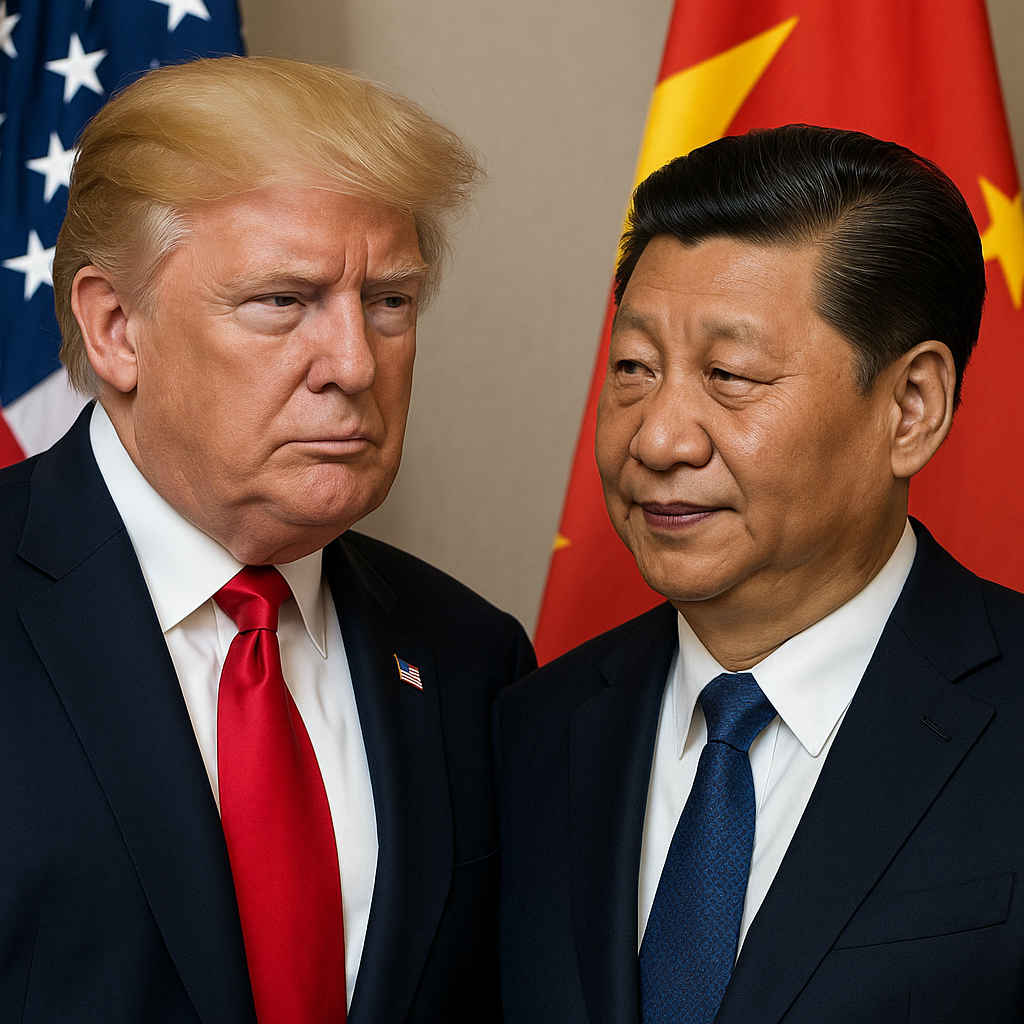A Renewed Spirit of Diplomacy
In a significant step toward easing tensions between Washington and Beijing, former U.S. President Donald Trump announced a breakthrough following his in-person meeting with Chinese President Xi Jinping. The meeting, held in Busan, South Korea, on the sidelines of the Asia-Pacific Economic Cooperation (APEC) summit, lasted nearly 1.5 hours. Both leaders described the conversation as productive, signalling a potential thaw in relations between the world’s two largest economies.
Key Outcomes of the Trump–Xi Meeting
Trump hailed the encounter as “amazing,” commending Xi as “a great leader of a mighty, powerful country.” Following their discussions, Trump confirmed that the United States would reduce tariffs on fentanyl-related imports from China, cutting rates from 20% to 10%. In return, China has pledged to intensify its crackdown on the export of precursor chemicals used to produce synthetic opioids.
In another major development, Xi agreed to pause China’s planned export restrictions on rare earth minerals—essential materials used in high-tech manufacturing, including smartphones, electric vehicles, and renewable energy systems. The suspension will reportedly last for at least a year, offering industries reliant on these materials temporary stability.
Agricultural and Trade Boosts
Agriculture was also a central topic of discussion. Trump announced that China had agreed to make immediate large-scale purchases of American soybeans, sorghum, and other farm commodities. He reiterated on Truth Social that “massive amounts” of these goods would begin shipping soon, describing it as a “tremendous win for U.S. farmers.”
This move is expected to ease tensions that had previously escalated during the height of the U.S.–China trade war, when both nations imposed tariffs on each other’s exports. The new agreement could help restore stability to global agricultural markets and provide economic relief to rural American producers.
Prospects for Energy Cooperation
The talks also opened the door for potential collaboration in the energy sector. Trump revealed that China was exploring the possibility of purchasing oil and gas from Alaska on a “very large scale.” While he did not offer specific details, he mentioned that U.S. energy experts Chris Wright and Doug Burgum, along with their Chinese counterparts, would soon meet to discuss the proposal.
If realised, such an energy deal could deepen economic ties and offer strategic benefits to both countries, particularly amid shifting global energy demands.
Building Mutual Respect and Future Engagement
Emphasising the tone of the discussions, Trump wrote on Truth Social, “There is enormous respect between our two countries, and that will only be enhanced with what just took place. We agreed on many things, with others of high importance being very close to resolved.”
The former president also revealed plans to visit China in April next year, with Xi expected to reciprocate with a visit to the United States later. These planned exchanges mark an attempt to rebuild trust and strengthen dialogue after years of geopolitical friction.
A Step Toward Stabilising U.S.–China Relations
While specific details of the proposed energy deal remain uncertain, analysts view the meeting as a cautious yet meaningful step toward normalising relations. The halving of fentanyl tariffs, China’s suspension of rare earth export controls, and renewed commitments to agricultural trade together represent a pragmatic shift from confrontation to cooperation.
As both leaders prepare for future visits, the world will be watching closely to see whether these diplomatic overtures can translate into enduring economic and political stability between the two superpowers.

